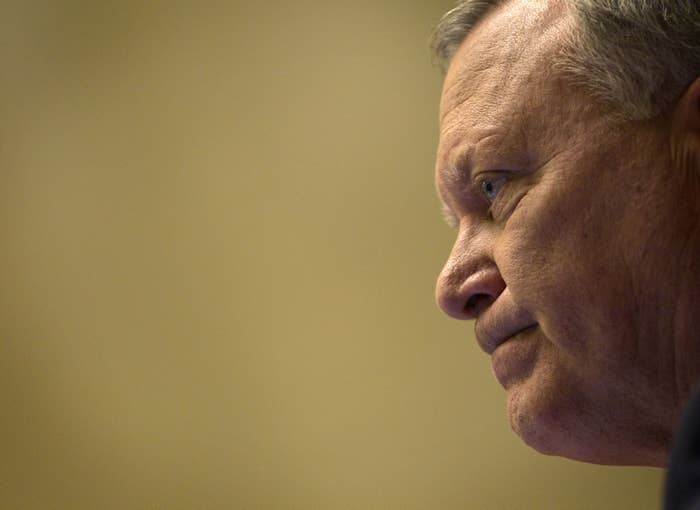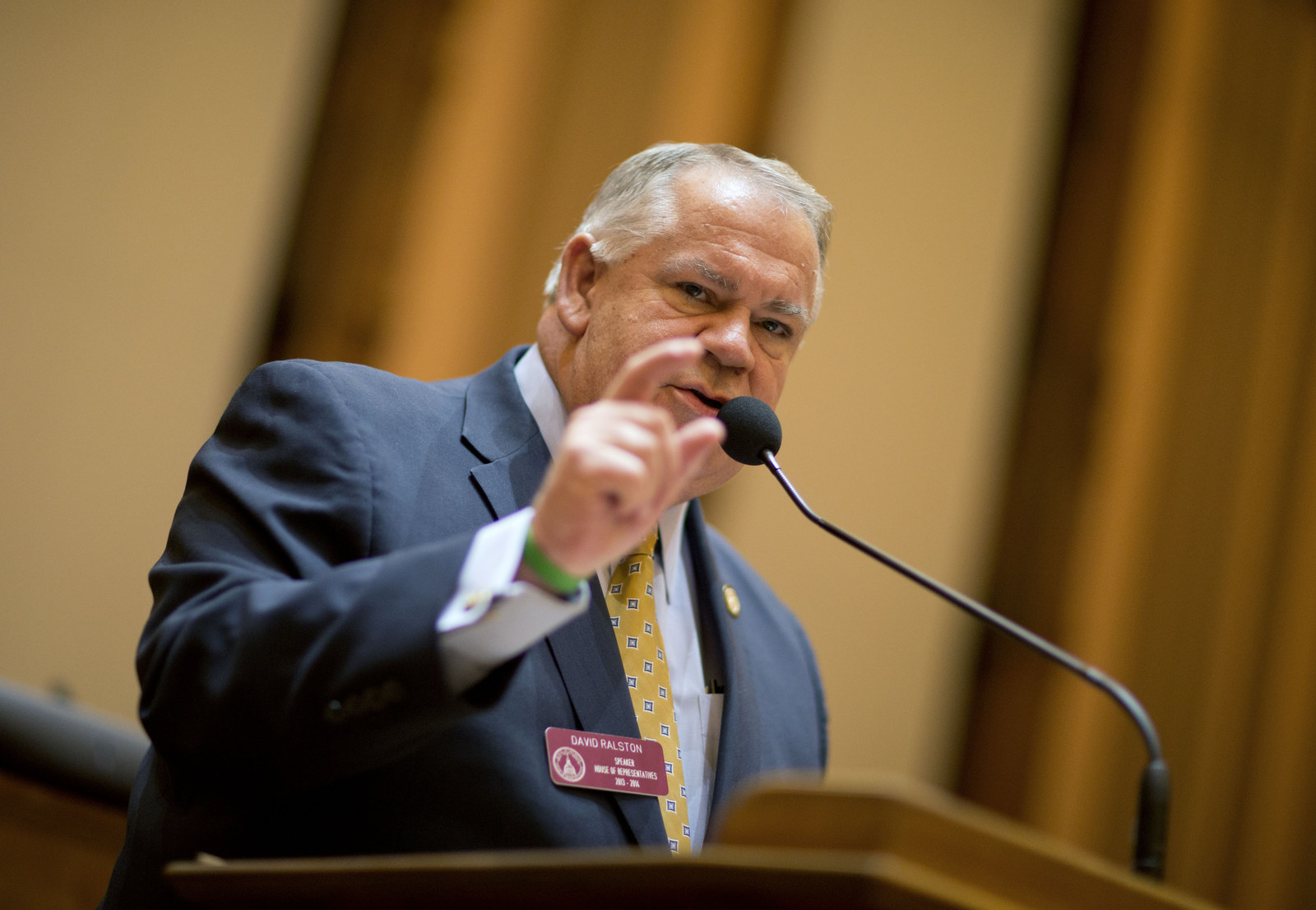
Progressive advocacy groups on Thursday pleaded with Georgia Gov. Nathan Deal to veto a bill passed the previous night that they contend would allow LGBT discrimination.
The groups may find a friendly audience with him — Deal had denounced a previous version of the legislation and appears to remain critical.
"The governor has been clear as to his position on this issue and will assess the legislation in April during bill review," Jen Talaber, a spokeswoman for Deal, told BuzzFeed News on Thursday when asked about the final bill.
On Wednesday night, both chambers of the Georgia General Assembly passed House Bill 757 to protect people and faith-based organizations that act on their religious beliefs — one of dozens of measures filed in legislatures across the country as a backlash to the Supreme Court’s 2015 decision for marriage equality.
Most pointedly, the bill would ban the state from penalizing faith-based organizations that act in the name of religion to turn away people seeking charitable services or employment.
It passed 104-65 in the House and 37-18 in the Senate.
The final bill was a settlement between the House and Senate, which had approved a broader version of the bill in February. Critics worried it could let businesses discriminate in commercial transactions.
"This bill is a compromise that is the result of extensive discussions between the legislative and executive branches as well as the business community and many other interested parties," Kaleb McMichen, a spokesman for House Speaker David Ralston, told BuzzFeed News.
"Carving out a small niche to discriminate is still wrong," said a spokesman for Better Georgia.
The compromise bill, he added, would protect religious liberties "without even the appearance of inviting discrimination. It is limited to clergy, churches, faith-based organizations and individuals. It does not impact businesses or any commercial transactions."
Now its fate is up to Deal.
The governor had opposed the more broadly written version of the bill earlier this month because it could be seen as "allowing or encouraging discrimination," he said in a statement.
But Deal's office did not state directly on Thursday whether he would veto the bill in its current form or let it become law.
Advocacy groups, working in tandem with business coalitions, argue that he must reject the measure.
"Carving out a small niche to discriminate is still wrong," Brandon Hanick, a spokesman for the progressive group Better Georgia, told BuzzFeed News. "A little bit of hate is still hate."
Democratic state lawmakers had universally opposed the bill. Rep. Karla Drenner, a lesbian, said in a floor speech, “This bill says that I am not as much of a citizen as my neighbor."

She argued the bill was a "license to discriminate" that would allow religious service providers to refuse LGBT youth or a religious school to turn away LGBT students.
House Bill 757 has taken a particularly convoluted path.
It began in the House in February as a so-called Pastor Protection Act, which would essentially re-affirm the rights of clergy and religious organizations to refuse services to same-sex couples that clash with their faith. The Constitution and other laws are regarded to already guarantee those rights. The House passed the bill in that form.
But the Senate amended the bill later that month, approving new language that would also ban government from penalizing an individual or faith-based organization for acting in accordance with their religious opposition to same-sex marriage. That version defined “faith-based organizations” as any entity with governing documents that acknowledge a religious belief — a definition loose enough that LGBT advocates worried it could apply to businesses open to the public.
LGBT advocates, including Freedom for All Americans, howled that the expanded bill was a carte blanche for discrimination, and activists and businesses pressed Speaker Ralston to reject the Senate proposal.
Which led to the brokered new bill.
In the legislation approved Wednesday, the bill drops mention of opposition to same-sex marriage and instead frames its scope around protecting religious freedom in general.
The version that passed Wednesday also limits the scope of faith-based organizations to exclude businesses.
It would protect the organizations — including those funded by the government — from penalties if they decline to employ someone on the basis of religion. It would also protect those organizations from government retaliation if they refuse charitable services for religious reasons.
Other portions of the bill echo the federal Religious Freedom Restoration Act, known as a RFRA. The bill says the government “may not substantially burden a person’s right to exercise of religion” unless the government has a compelling reason and uses the least restrictive means possible.
“In its original form, this bill was respectful to all of us,” Drenner said about the original Pastor Protection Act. “This bill replaces it with a license to discriminate.”
